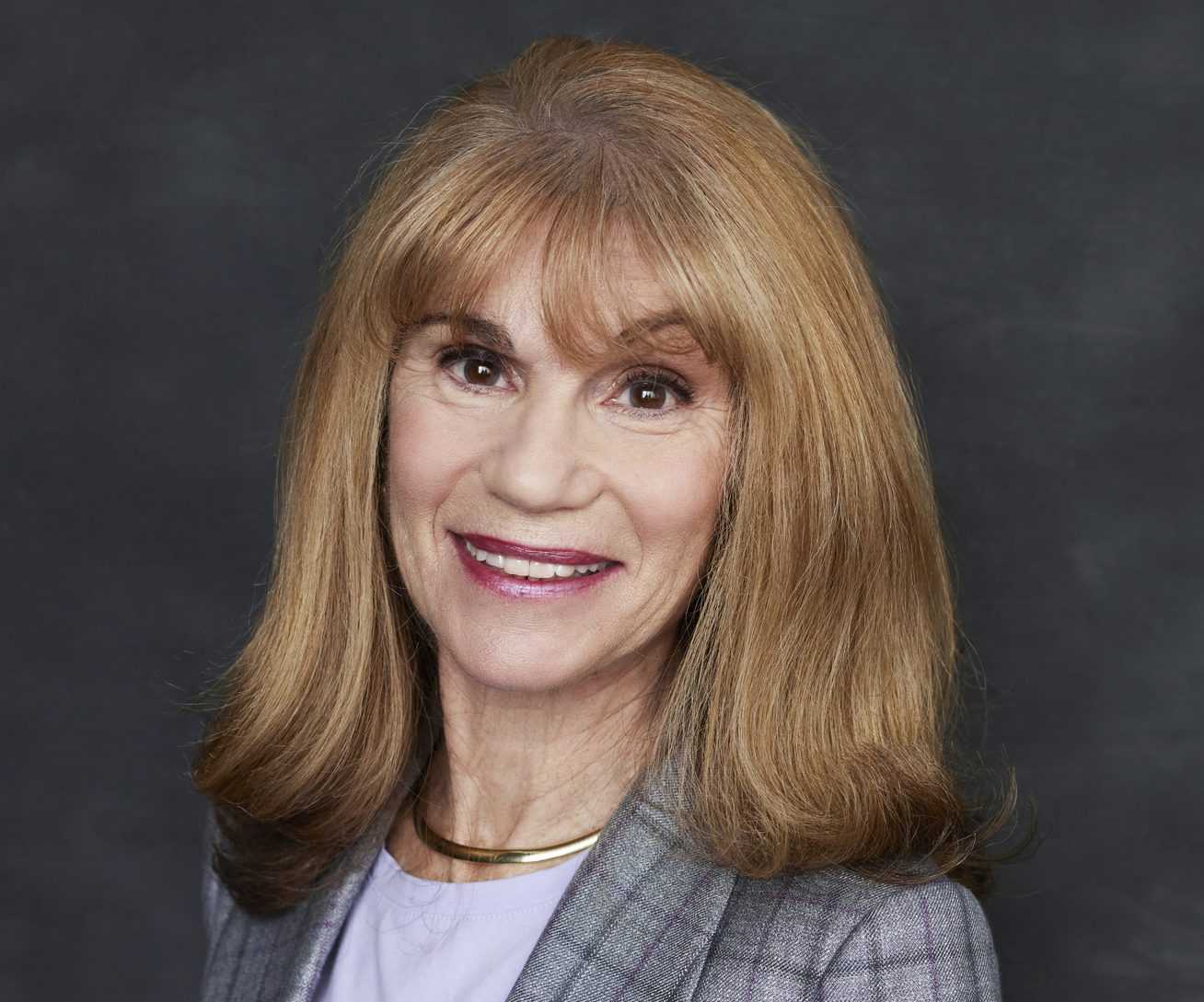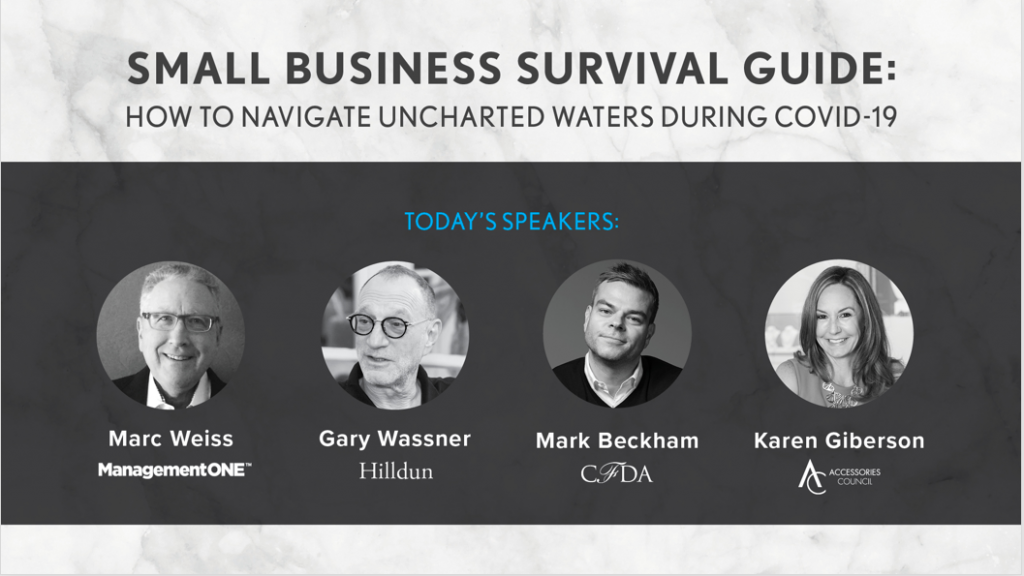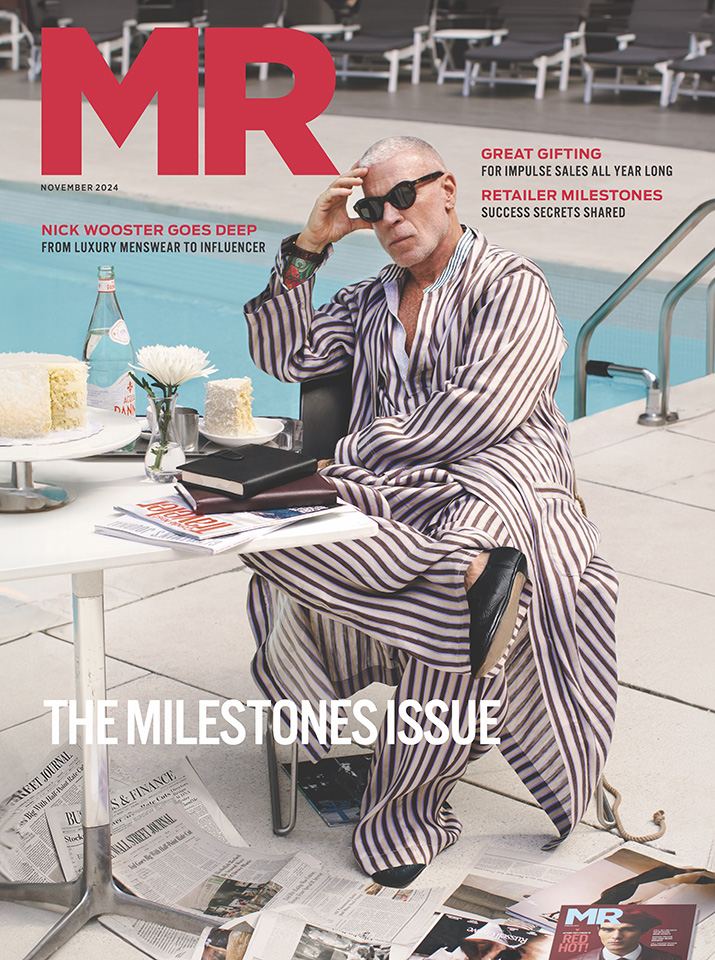SMALL BUSINESS SURVIVAL: INDUSTRY EXPERTS PROVIDE INSIGHT


Yesterday’s webinar sponsored by Fashion Frameworks (Informa) provided some interesting insights on how to navigate uncharted waters during the pandemic. The panel comprised Mark Beckham, VP of marketing at CFDA; Karen Giberson, president of Accessories Council; Marc Weiss, CEO of Management One; and Gary Wassner, CEO of Hildun (provider of financing and factoring for brands).
Management One’s Marc Weiss pointed out a possible silver lining for independent retailers who must now create new ways to communicate with their customers while their stores are closed. “Retailers should enhance their digital footprint: independent stores need to think about the future and the probable change in consumer expectations. Customers will likely expect more in terms of service, speed, and convenience. I’ve been impressed with how incredibly nimble the big stores have become, integrating services like BOPUS. Even with their stores closed, independents can feature products on social media, Zoom or facetime. They can still communicate with their clients, sell gift cards, make phone calls just to check-in. Now’s a great time to get creative and plan for the future.”
Hildun’s Gary Wassner agreed, noting that business is actually good at several vertical chains and online retailers like Net A Porter, Resolve and Shop Bop, successful because they’ve re-assorted their mix. “Independent stores need to be planning now, with their vendors, where their inventory will be end-April, end-June. Once stores reopen, they could have three seasons piled up. That said, stores shouldn’t jump the gun on markdowns; they’ll need inventory to get things going. I think this could be a golden opportunity to get the industry into a buy-now, wear-now position, something many experts have been advocating for years. Although suppliers still need six months to produce goods, customers no longer shop in advance so our current delivery schedules make no sense. The goal is to align deliveries closer to the season instead of bringing in heavyweight fall merchandise when it’s still hot.”
Wassner also spoke about what’s now available to small businesses from the SBA. “Retailers and brands must submit applications on the SBA website but the applications must be complete or they will be rejected (and it’s much more difficult to reapply). So my advice to retailers: prepare carefully, and get help from your accountant if necessary. Understand that response to your application will take 21 days.”
As for payroll relief, Wassner said retailers need to go directly to an accredited SBA lender. “Small companies can get a forgivable loan if they don’t lay off any employees and don’t reduce salaries of anyone earning more than $100,000.”
What’s the most important thing a small business should be doing now? According to Weiss, the obvious answer is to preserve cash. “But you have to communicate and be transparent: with your vendors, with your landlords, with your employees. You can’t just not pay people—you need to communicate honestly, negotiate wisely and use government funds judiciously.”
Wassner agrees. “Even in normal times, the worst thing you can do is not communicate. We all understand the pressures of this pandemic: everyone’s afraid. But the answer is to negotiate, not demand. What I’m seeing is a tremendous lack of communication: big stores are emailing all their vendors to cancel orders, to extend terms 90 days. It’s exactly the wrong thing to do: one solution does not fit all; lots of big brands have reserves so it makes much more sense to talk to your vendors and explain what you need. It’s not okay to simply walk away from obligations. Talk about it; have a conversation. People respond to the truth.”
Mark Beckham from CFDA spoke of the extent to which the group (led by Tory Burch) lobbied Congress re: the relief package. They’ve also formed A Common Thread, a fund that will make money available to independent retailers, designers and manufacturers to help with rent, payroll, insurance, etc. “The fund recently raised $2 million. Applications for micro-grants (up to $100,000 but most will be less) will open on April 8th.” Karen Giberson noted that the Accessories Council has a similar fund and is matching donations up to $250,000.
If you’d like to watch the webinar in full, click here.



Thank you. Great discussion for both us small vendors, and retailers.
Don’t break the chain. We all need to work through this.